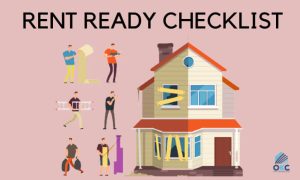Good communication with your property manager is crucial for sustaining a pleasant and profitable rental experience as an apartment proprietor or renter. Proper communication could make all of the difference in achieving a satisfactory outcome, regardless of whether you are dealing with problems with maintenance or talking contract terms. In the following paragraphs, we will go over a number of successful methods for communicating with property managers.
Create Ways of Communication
Establishing open lines of communication with your property manager is the initial step in effective communication. You ought to consider with your property manager the most efficient and practical ways of communication for both of you. This may be accomplished via email, phone, text message, or an online portal supplied by the property management firm. Gather all pertinent contact details for your property manager and emergency contacts in the event of an emergency.
Establishing a schedule for communication is essential, whether it involves periodic visits or only calling your property manager when a problem occurs. Having an ongoing routine aids in addressing any problems or concerns in a timely manner.
Be Specific and Brief
It is essential to be clear and succinct when talking to your property manager about the problem or suggestion at hand. It involves giving particulars, such as the issue’s address and timing of occurrence, as well as any other pertinent information that may assist your property manager in resolving the issue.
When asking an inquiry, be clear about what you want and the reason you want it. Explain the issue and the way it affects your capacity to use the property if you ask for a repair, for instance. Your property manager can resolve the problem quicker if you provide as much information as feasible.
Use optimistic words
Positivity is a successful way of communicating with your property manager. Focus on sharing your worries in a way that is helpful rather than using unfavourable or critical language. For instance, instead of stating, “You never respond to my requests,” you could say, “I’ve had difficulty reaching you. “Can we develop a more effective approach to communication?”
Positivity can aid in establishing a more productive and collaborative relationship with your property manager, resulting in improved outcomes for both parties.
Respectful and Professional Conduct
It is essential to communicate with your property manager in a respectful and professional manner. The use of profanity or aggressive language can harm the relationship and make it more difficult to resolve issues. Keeping in mind that your property manager is a professional who is there to assist you can go a long way towards fostering a positive relationship.
In addition, observe the property itself. If you are a tenant, you should regard the property as if it were your own. This includes immediately notifying the property manager of any damages or maintenance issues. Ensure that your property is well-maintained and in excellent condition for your tenants if you are a property owner.
Follow Through
After communicating with your property manager, it is essential to follow up on any requests or concerns discussed. This ensures that the issue is addressed and can prevent miscommunications and misunderstandings.
Tenants should follow up with their property manager to ensure that all repairs and maintenance issues have been resolved satisfactorily. If you are a property proprietor, check with your property manager to ensure that all tenant complaints have been addressed.
If the issue has not been satisfactorily resolved, it may be necessary to escalate the matter to a higher authority within the property management company or even seek legal counsel.
Conclusion
Maintaining a positive and fruitful rental experience requires effective communication with your property manager. Key strategies for effective communication include establishing clear communication channels, being explicit and concise, using positive language, being respectful and professional, and following up on requests and issues.






